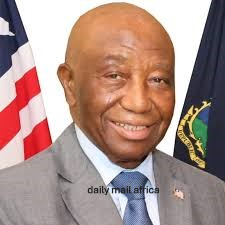
President Joseph Boakai has pledged to establish a national war memorial to honor victims of Liberia’s devastating civil wars, including the Economic Community of West African States (ECOWAS) peacekeepers who lost their lives during the conflicts.
The announcement came during the nation’s 178th Independence Day celebration at the Centennial Memorial Pavilion in Monrovia.
Boakai’s promise follows his public apology, delivered three weeks earlier, to the victims of Liberia’s two civil wars on behalf of the state.
The wars, which killed an estimated 250,000 people and displaced millions, left the country’s infrastructure shattered and communities deeply scarred.
“This sacred monument will not only commemorate the fallen but will also serve as a call to conscience for generations to come, a powerful reminder that the peace we enjoy today was never free,” said Boakai. “It was earned through courage, paid for in sacrifice, and must be preserved by unity.”
The memorial is one of 207 recommendations in the 2009 Truth and Reconciliation Commission (TRC) Report, which called for commemorative sites in every county capital, including locations of massacres.
The TRC also recommended a national Memorial Day to honor victims, though Boakai did not explicitly address that in his speech.
Instead, he declared a national day of prayer for Wednesday, urging Liberians and international partners to gather “in churches, mosques, and other places of worship” to seek blessings and renew their commitment to peace and unity.
While Boakai’s initiative has won praise from transitional justice advocates, some have voiced caution.
Hassan Bility, director of the Global Justice and Research Project, welcomed the memorial but warned against diverting resources from the underfunded War and Economic Crimes Court.
Let’s NOT plan and promise what we can’t deliver,” Bility said via WhatsApp.
“The most urgent right now is the funding to the War and Economic Crimes Court. Donors aren’t going to give a dime if they do not see a genuine commitment from the Government of Liberia.”
Frances Greaves, a veteran peace activist, called the plan “a positive step” but stressed the need for careful execution.
“It’s necessary that this whole thing is not something that will be like a quick impact,” she said. “It should be something that will be thought properly so that when it’s done, it will yield the desired result.”
The ceremony also marked the first time ECOWAS soldiers were formally recognized for their role in stabilizing Liberia.
Boakai paid tribute to the regional bloc, saying Liberia “owe a historic debt of gratitude” to the nations that deployed peacekeepers, including Ghana, Sierra Leone, Senegal, and Nigeria.
Sierra Leone’s President Julius Maada Bio, who served as a peacekeeper in Liberia, praised the country’s progress but warned of the challenges ahead.
“Healing the past and building the future is not instant,” he said.
“It demands tenderness. It demands courage. It asks us to view the past not with bitterness, but with resolve.”
Boakai, echoing that sentiment, said Liberia’s progress depends on reconciliation. “Our development will not endure without reconciliation; our future cannot take root without unity,” he told the crowd.
“That is why this year’s theme — ‘one people, one destiny, healing the past and building the future’ — rings loud with such urgency.”



